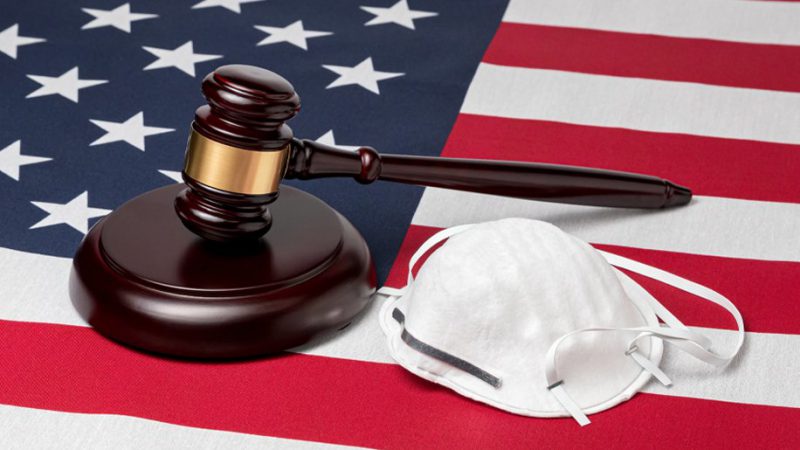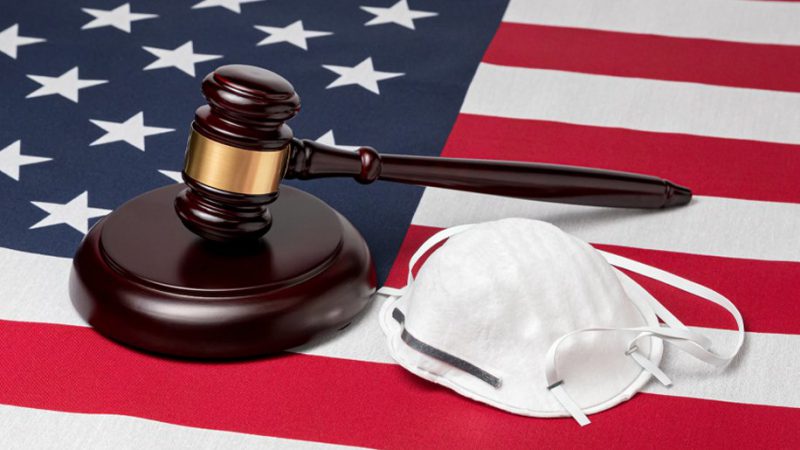Most Travelers Applaud Mask Mandate
Survey finds ban promotes more confidence in traveling, but may actually relax some airlines’ mask policies
February 11, 2021

The new mask mandate issued Jan. 30 by the Centers for Disease Control and Prevention has met with overwhelming positive response from the traveling public, according to a new survey.
The CDC rules which require everyone using public transportation to wear masks received a 91 percent traveler confidence approval rating in the latest Traveler Confidence Index from Travel Again, an industry advocacy group. The survey found half of respondents said the mask order increased their confidence in traveling, 41 percent said it had no change and only 9 percent said it decreased their confidence.
The CDC’s actions target mask-wearing on certain modes of public transportation – planes, trains and buses – as well as at “any airport, bus terminal, marina, seaport or other port, subway station, terminal, train station, US port of entry, or any other location that provides transportation.” This implements an executive order signed by President Joe Biden in the early days of his administration.
Travel Again was formed to restore consumer and corporate confidence in traveling and to encourage responsible government policy. Mike McCormick, the group’s co-founder, said the high traveler confidence approval rating for the mandate demonstrates the power of instituting consistent standards and policies that travelers understand.
“This specific policy allows front-line travel staff to be more effective in their roles in keeping the public safe while traveling,” McCormick added.
Among the roles undertaken by front-line travel staff is mask policy enforcement. The Department of Homeland Security has tasked TSA officers with ensuring the mask rules are followed, including the power to levy fines of up to $1,500 for travelers who fail to obey the CDC mandate.
However, with a government-mandated industry wide mask policy in place, some airlines are actually finding their previously instituted mask rules too strict.
At the beginning of the pandemic, US airlines began to institute ad hoc mask policies. Some allowed exceptions for passengers with medical conditions, while others insisted that everyone over the age of 2 must wear a mask.
The CDC order, on the other hand, grants mask exemptions for some people, including those with a disability “as defined by the Americans With Disabilities Act,” which prevents them from wearing a mask. The CDC notes that the ADA only allows for a very “narrow exception.”
As a result, airlines which had previously required all passengers to wear masks are now reevaluating their policies. American Airlines, for example, says exemptions to the mask requirement “will require documentation from a licensed health care provider.” Other US carriers that have not allowed exceptions to the mask rules included Alaska Airlines and JetBlue.
Meanwhile, United mandates customers with medical exemptions speak to a United representative prior to boarding and Delta requires medical exemptions to be screened through the airline’s own phone-in medical provider.
Although consistent mask policy may be one area of travel that is coming into focus, McCormick added that overall traveler confidence remains clouded with significant uncertainty. The Travel Again survey shows only 9 percent of business travelers and 13 percent of leisure travelers are fully ready to fly.




